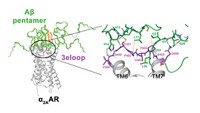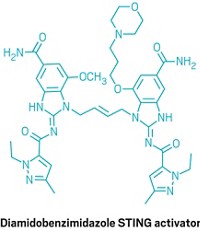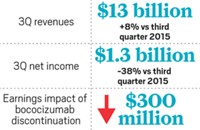Advertisement
Grab your lab coat. Let's get started
Welcome!
Welcome!
Create an account below to get 6 C&EN articles per month, receive newsletters and more - all free.
It seems this is your first time logging in online. Please enter the following information to continue.
As an ACS member you automatically get access to this site. All we need is few more details to create your reading experience.
Not you? Sign in with a different account.
Not you? Sign in with a different account.
ERROR 1
ERROR 1
ERROR 2
ERROR 2
ERROR 2
ERROR 2
ERROR 2
Password and Confirm password must match.
If you have an ACS member number, please enter it here so we can link this account to your membership. (optional)
ERROR 2
ACS values your privacy. By submitting your information, you are gaining access to C&EN and subscribing to our weekly newsletter. We use the information you provide to make your reading experience better, and we will never sell your data to third party members.
Biological Chemistry
Small molecule stalls PCSK9 translation
Compound targets a specific codon in the ribosome to selectively halt production of cholesterol regulator
by Bethany Halford
November 7, 2016
| A version of this story appeared in
Volume 94, Issue 44
Last week, Pfizer announced it would stop work on bococizumab, a monoclonal antibody designed to inhibit the cholesterol regulator proprotein convertase subtilisin/kexin type 9 (PCSK9) because of weak data and a changing market for lipid-lowering agents (see page 15). The news came just one week after Pfizer scientists, led by Robert Dullea, reported a small molecule that can shut down translation of PCSK9 (bioRxiv 2016, DOI: 10.1101/083097). The work, which appeared on a preprint server and has not yet been peer reviewed, was done in collaboration with University of California, Berkeley, researchers led by Jamie Cate. The small molecule, known as PF-06446846, appears to cause the ribosome to stall when synthesizing PCSK9. “PF-06446846 is exceptionally specific, affecting very few proteins,” the researchers note. The compound lowered cholesterol levels in rats. PCSK9 prevents the receptors that remove low-density lipoprotein cholesterol—also known as LDL or “bad” cholesterol—from doing their job. Two monoclonal antibody drugs that block PCSK9 have been approved to lower LDL cholesterol in certain patients, but to date, no small molecule aimed at lowering PCSK9 has been approved. This study, the authors write, “reveals a previously unexpected tunability of the human ribosome, which allows small molecules to specifically block translation of individual transcripts.”





Join the conversation
Contact the reporter
Submit a Letter to the Editor for publication
Engage with us on Twitter